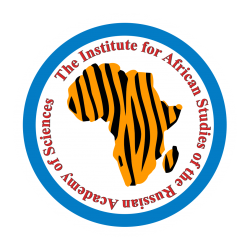Editorial ethics
“Journal of the Institute for African studies” adheres to the norms generally accepted by the international academic community, including the editors’ and publishers’ ethics, the ethics of academic peer-reviewing, the authors’ ethics, and, also the requirements of the current legislation of the Russian Federation. We act in in conjunction with the following fundamental documents:
– Code of Ethics of Scientific Publications of non-profit partnership “Committee on ethics of scientific publications”
– Code of Conduct and Best Practice Guidelines for Journal Editors (Committee on Publication Ethics)
– Provisions of Chapter 70th “Copyright” of the Civil Code of the Russian Federation
In its activity, the Editor pursues the principles of scientific character, objectivity, professionalism, impartiality.
The Editor comes from the reliability of submitted data and scientific significance of the reviewed work, evaluates the manuscript and works with it to determine its place in the modern scientific context, possible updating themes, as well as the editorial policy of the Journal.
The Editor ensures that he evaluate intellectual and scientific content of the manuscript. Any personal and subjective evaluations are categorically not acceptable in the editor’s work.
The Editor is obliged to agree the final version of the manuscript with the author before its publication (after making all edits and changes).
The Editor does not allow to publish manuscripts with the signs of plagiarism, conflicts of interest, fictional authorship, etc. (see Basic ethical principles of authors of scientific articles).
The Editor adheres to the principle of the confidentiality of the review process, i.e. ensures that no parts of the manuscripts are disclosed to third parties before its publication; Also, materials not included in the final version of the article will not be disclosed to third parties without the consent of the author.
